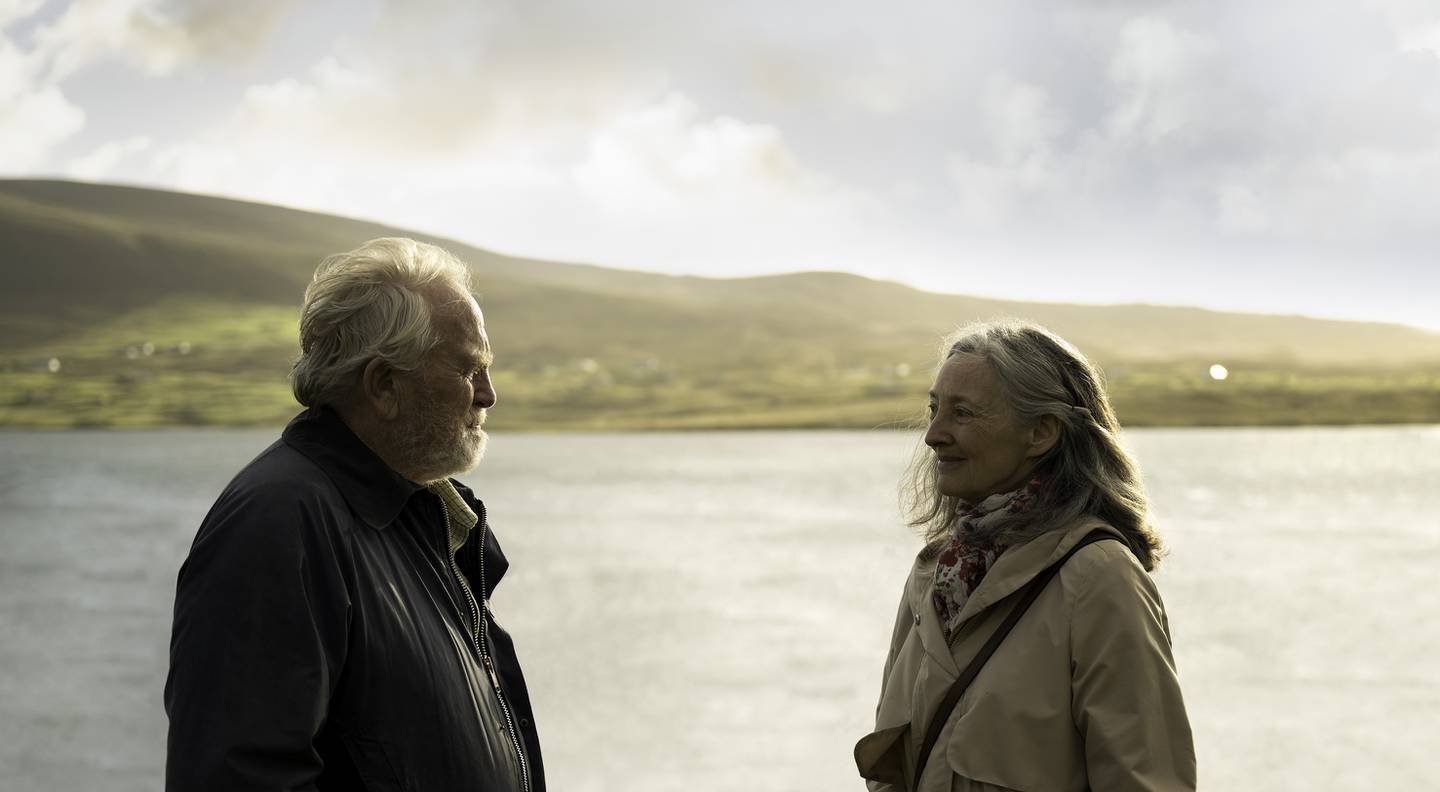Movie Info
Movie Info
- Director
- Klaus Härö
- Run Time
- 1 hour and 42 minutes
- Rating
- Not Rated
VP Content Ratings
- Violence
- 0/10
- Language
- 2/10
- Sex & Nudity
- 2/10
- Star Rating
Relevant Quotes
A cheerful heart is a good medicine, but a downcast spirit dries up the bones.
Love is patient; love is kind;..

Directors Klaus Härö’s film could be seen as a variation on the classic story Beauty and the Beast, with James Cosmo’s grumpy, retired sea captain Howard a good stand-in for the Beast. And what a delight is Brid Brennan’s Annie, the new housekeeper that Howard’s worried daughter Grace (Catherine Walker) hires to care for her hostile father. As a Beauty advanced in years, her wrinkled face seems aglow when she smiles.
However, the film opens on the daughter, revealing that this will not just be a heart-warming tale of senior romance, but a much darker tale of a dysfunctional family, of a psyche damaged by a father who abandoned his daughter and has yet to atone for it. Grace is sitting in a circle at a group therapy session where other women are sharing their marital woes. When her turn comes, Grace is silent, unable to share her sad story. Next, we see her car moving along a coastal road, stopping at her father’s sea-side house. Although Grace and her father have been emotionally estranged for many years, she dutifully looks in on him to provide meals and clean his disheveled house.
Howard has retreated into himself, barely speaking a word. He is churlishly upset when she introduces Annie as his housekeeper and cook. He ignores the enticing meal that Annie sets before him. Asking her how much Grace is paying her– €400—he says that he will give her €500 if she “never darken my door again.” Hurt, the woman silently walks out, refusing to close the door as she walks down the unpaved road back toward the village.
Curiously, Howard displays a different side of himself when he ventures out to the village tavern that serves as the area’s social gathering. Here he regales the patrons with his conversation and stories. He relates well especially to children with his tales of adventure at sea. Apparently realizing how boorish he has acted toward Annie, Howard apologizes to Annie as he holds out to her a bouquet of flowers. Still smarting from his cruel dismissal, she hesitates. He persists, and her good nature wins out over her hurt and resentment. She returns, and during the following weeks the two grow closer together. Annie even accepts his invitation to move into his house, the interior of which she has transformed from a chaotic mess into one of order and spare beauty.
We might expect Grace to be happy over her father’s situation, but just the opposite ensues. Mixed with a tinge of jealousy—especially after she intrudes upon a warm gathering hosted by Annie’s married daughter and children—the deeply embedded pain caused by years of neglect by Howard explodes.
From time to time Grace reveals how her mother had become ill so that during her 14th her father had year abandoned them because he could not cope with his wife’s suffering. Grace had been forced to care for her mother until the latter’s death, thus deprived of the parental nurture she had deserved during her teen years. She becomes extremely upset because her father had not consulted or even told her that Annie was moving in with him. It is the shocking sight of Annie’s collection of family photos displayed atop the mantle piece that informs her of her father’s new relationship with the woman she had hired solely as a housekeeper.
Thus, although the December romance movingly unfolds, it is far more complicated than the usual cinematic depiction of geriatric lovers. And, also, after a series of tragic events, the film also becomes a deeply moving depiction of understanding and reconciliation, revealing that the film is as much the story of the two women as it is of late in life romance. Actresses Catherine Walker and Brid Brennan are certainly up to the task of making us care for them, Walker probably having the heaviest task of getting us care for a woman who at first seems to be an irritating sour puss even though she is a nurse.
We do see one tender moment when Grace tenderly cares for an elderly female patient, but by and large her attitude is so negative that she is dismissed from her job. If Grace is the embodiment of the second half of the proverb, then Annie, on the other hand, is the embodiment of the first half, as well as of the love described by the apostle Paul. As mentioned above, her smile lights up her face. When we see her thus, her wrinkled face becomes as beautiful as any woman forty years her junior. It is that face, in a close-up shot, that we see at the film’s end, making this otherwise dark film one of light and, even in the presence of sorrow, one of hope for the future. We can well understand why the film won the “best Irish film” from Dublin Film Critics’ Circle at the Dublin International Film Festival.
This review will be in the Nov. issue of VP along with a set of questions for reflection and/or discussion. If you have found reviews on this site helpful, please consider purchasing a subscription or individual issue in The Store.

